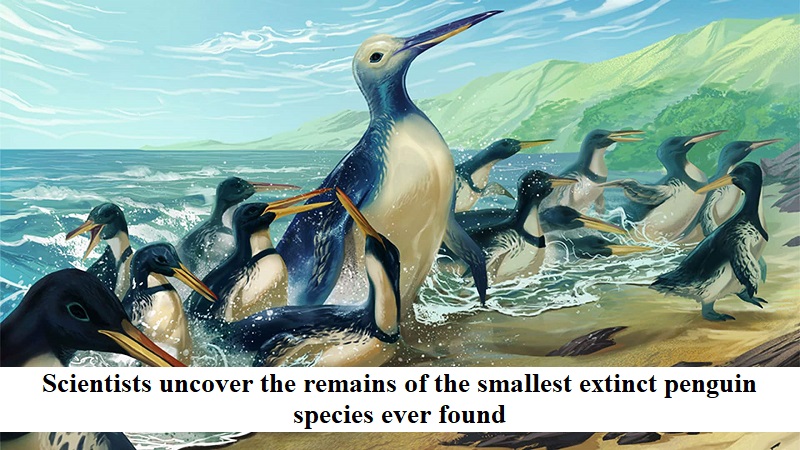
Scientists have made a significant discovery of the remains of the smallest known extinct penguin species that inhabited New Zealand approximately three million years ago. The findings were published in the Journal of Paleontology last month.
The fossils, consisting of two skulls, were unearthed by Karl Raubenheimer in sediments dating back three million years in New Zealand’s southern Taranaki region on the North Island. Through analysis conducted by a team led by Massey University in New Zealand, it was determined that the nearly complete skulls belonged to an adult and a fledged juvenile, and they were identified as a new species named Wilson’s little penguin (Eudyptula wilsonae).
The skulls exhibit striking similarities in size and shape to the skulls of today’s little penguins, which are the smallest living penguin species. Although the researchers were unable to determine the exact size of the extinct penguins due to the absence of other bones, the living little penguins typically grow to around 35 centimeters in height and weigh 0.9 kilograms.
The researchers stated that these findings confirm the Zealandian origin of little penguins and their existence during the Neogene period. Currently, little penguins and their four subspecies are found in New Zealand, Australia, and Tasmania, but little was known about their origins until now.
The recent discoveries also contribute to filling gaps in the ecosystem’s history and provide insights into other extinct and living species in New Zealand. Dr. Daniel Thomas, a zoologist at Massey University, emphasized the importance of these fossils in understanding the origins and evolution of penguins and the dynamic environment they inhabit.
In a separate event reported in June 2022, over 500 little penguins were found dead on beaches in New Zealand, with the cause of death remaining uncertain. It was speculated that climate change may have played a role, as the rising ocean temperatures could have affected the availability of prey, leading to malnourishment among the penguins.
Dr. Thomas highlighted the importance of studying species that lived in New Zealand during previous warm phases, as rising temperatures are likely to impact the habitat and biodiversity in the region.
Overall, this discovery sheds light on the ancient history of little penguins in New Zealand and provides valuable information for understanding their origins and the challenges they face in the face of environmental changes.

Post Your Comments